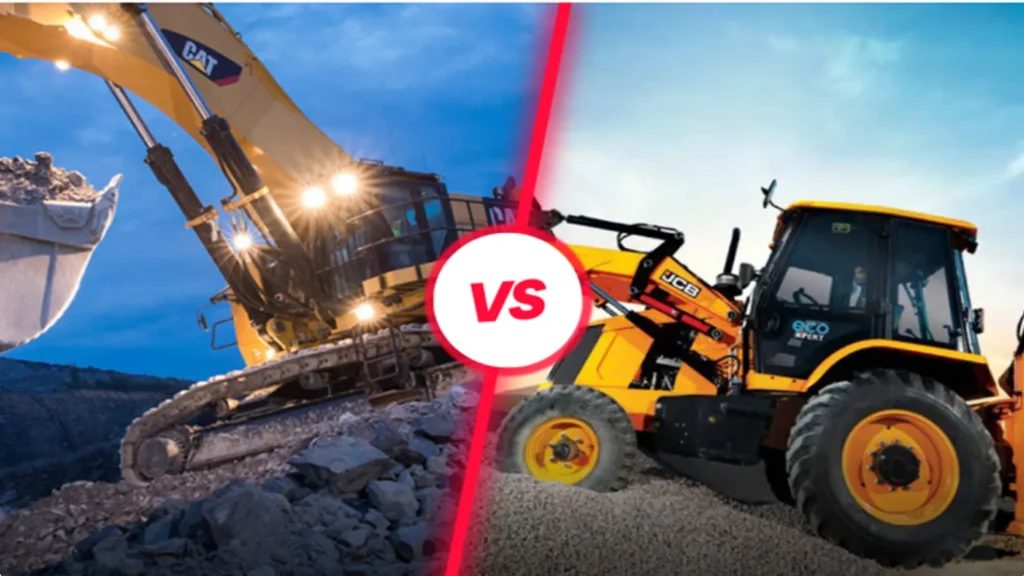The construction and heavy equipment industry is at a crossroads between traditional diesel-powered machinery and the emerging trend of electric heavy equipment. With increasing concerns about fuel costs, emissions, and sustainability, many companies are considering making the switch to electric machinery. But is electric the future, or does diesel still have an advantage? This blog compares the two and explores what lies ahead for the industry.
1. Understanding Diesel-Powered Heavy Machinery
Diesel-powered heavy machinery has been the industry standard for decades. These machines are powered by internal combustion engines (ICE), using diesel fuel to generate mechanical energy.
Advantages of Diesel Machinery
-
-
- High Power and Performance – Diesel engines produce more torque and horsepower, making them ideal for heavy-duty applications like excavation, mining, and earthmoving.
- Longer Operating Hours – Unlike electric machines, diesel-powered equipment can run for extended periods without requiring frequent refueling.
- Proven Reliability – Diesel engines have a well-established track record of durability and efficiency.
- Easier Refueling – Diesel fuel is readily available, and refueling takes just a few minutes compared to electric charging, which can take hours.
- Challenges of Diesel Machinery
- High Fuel Costs – Diesel fuel prices fluctuate, making operational costs unpredictable.
- Environmental Concerns – Diesel engines emit carbon dioxide (CO₂), nitrogen oxides (NOₓ), and particulate matter, contributing to air pollution.
- Maintenance Requirements – Diesel engines have complex mechanical components that require regular servicing, oil changes, and filter replacements.
-
2. The Rise of Electric Heavy Machinery
Electric heavy equipment is an emerging alternative, powered by battery-electric or hybrid-electric systems. Companies like Volvo, Caterpillar, and Komatsu are developing electric excavators, loaders, and dump trucks.
Advantages of Electric Machinery
-
-
- Zero Emissions – Fully electric machines produce no tailpipe emissions, making them environmentally friendly.
- Lower Operating Costs – Electricity is generally cheaper than diesel, and electric motors have fewer moving parts, reducing maintenance expenses.
- Quieter Operation – Electric machinery generates less noise pollution, making it ideal for urban construction projects.
- Government Incentives – Many governments offer tax credits and subsidies for companies investing in electric construction equipment.
-
Challenges of Electric Machinery
-
-
- Limited Battery Life – Most electric heavy equipment has a limited operating range before requiring a recharge, making them less suitable for continuous operations.
- High Initial Cost – Electric machines are often 20-50% more expensive than diesel-powered alternatives due to battery costs.
- Charging Infrastructure – The availability of charging stations is still limited, especially in remote or off-grid construction sites.
- Lower Power Output – Although improving, electric motors may not yet match the raw power of diesel engines for the heaviest workloads.
-
3. Which One is the Future?
The future of heavy machinery is likely a hybrid approach. While diesel remains dominant for large-scale and high-power applications, electric technology is rapidly improving.
Current Industry Trends
-
-
- Hybrid Models – Many manufacturers are developing hybrid machines that combine diesel engines with electric motors for better efficiency.
- Battery Technology Advancements – Research in solid-state batteries and fast-charging solutions may soon solve the issue of limited range.
- Regulatory Pressure – Governments worldwide are tightening emissions regulations, pushing manufacturers toward electric and hybrid solutions.
- Sustainability Initiatives – Large construction companies are shifting toward eco-friendly operations, investing in electric fleets to reduce their carbon footprint.
-
4. Conclusion: Which One Should You Choose?
If your project requires heavy-duty performance, long hours, and remote-site flexibility, diesel is still the best choice. However, if you’re working in urban areas, indoor environments, or looking to cut emissions and operating costs, electric machinery is worth considering.
Explore Heavy Machinery Options
Whether you’re looking for reliable diesel-powered machines or considering a shift to electric heavy equipment, visit HeavyMachineryCare.com to find the best options for your business!











